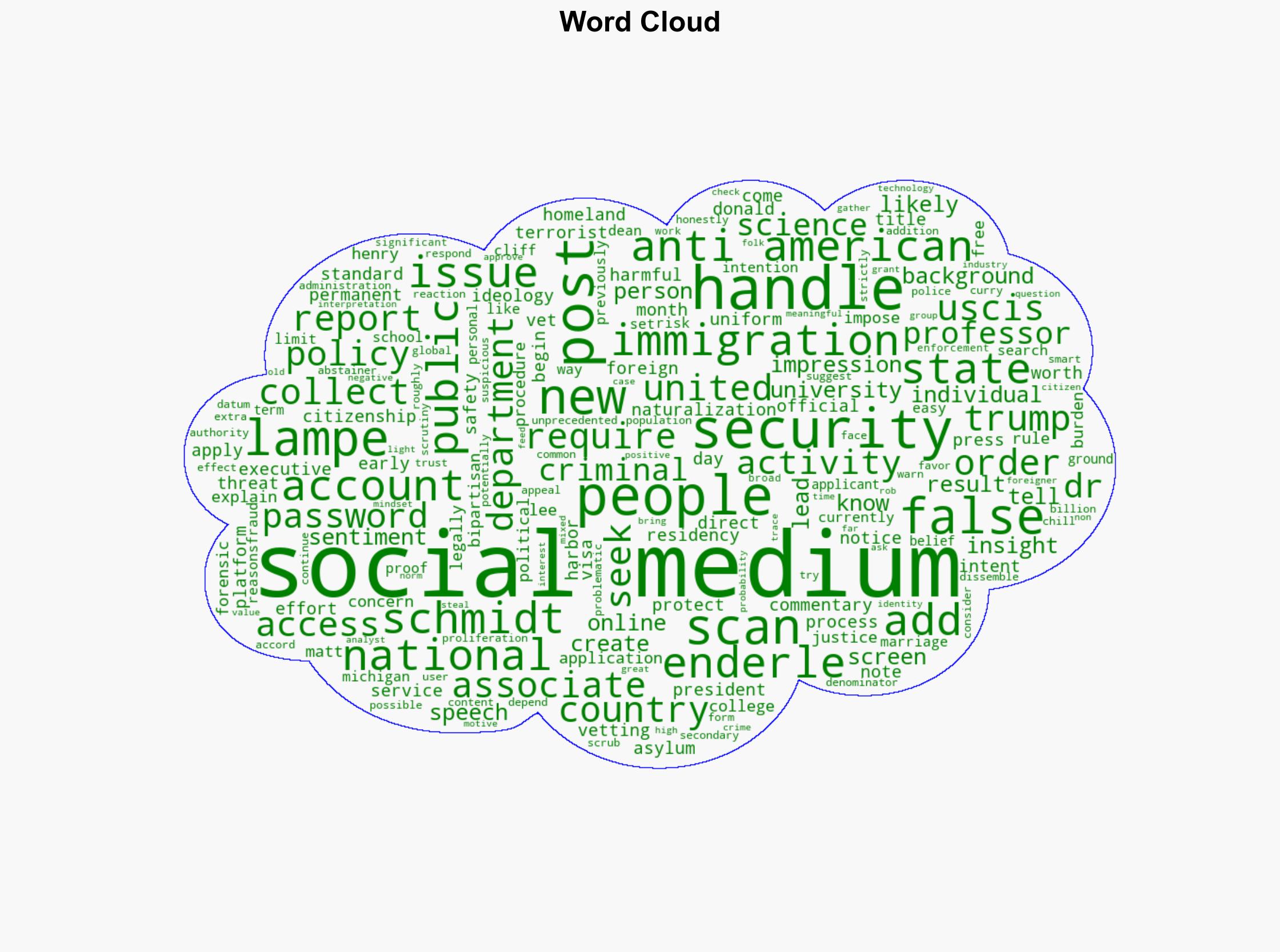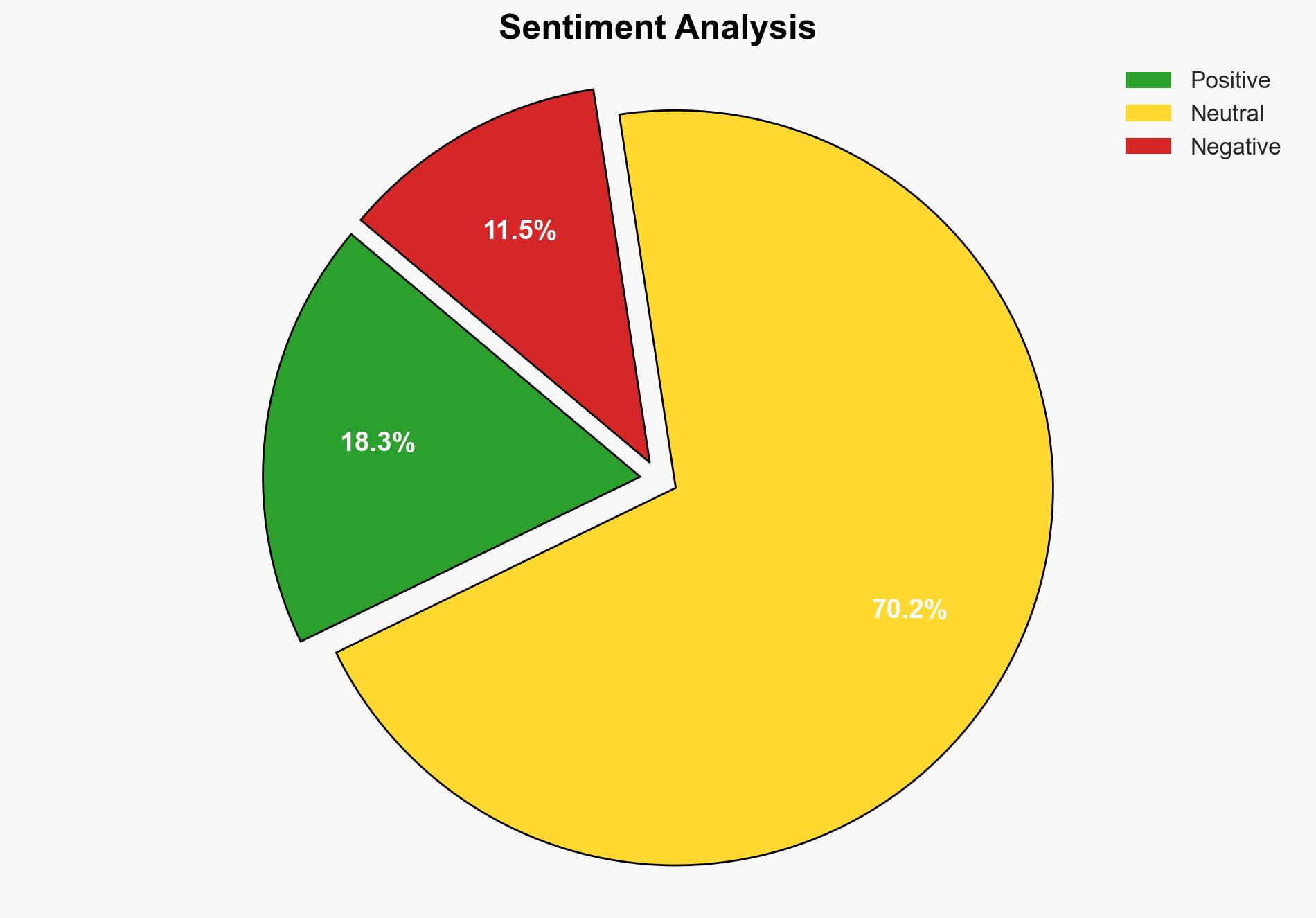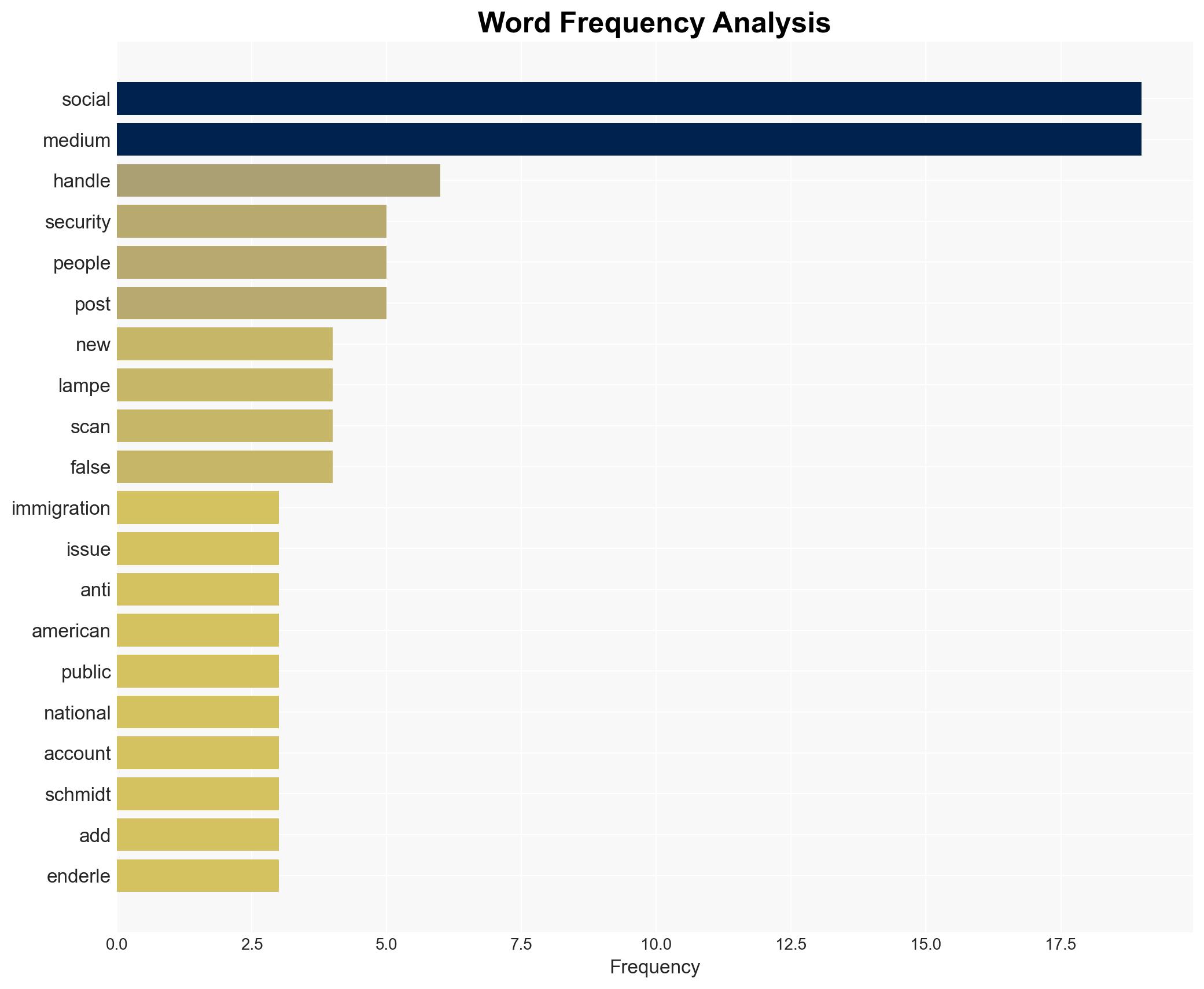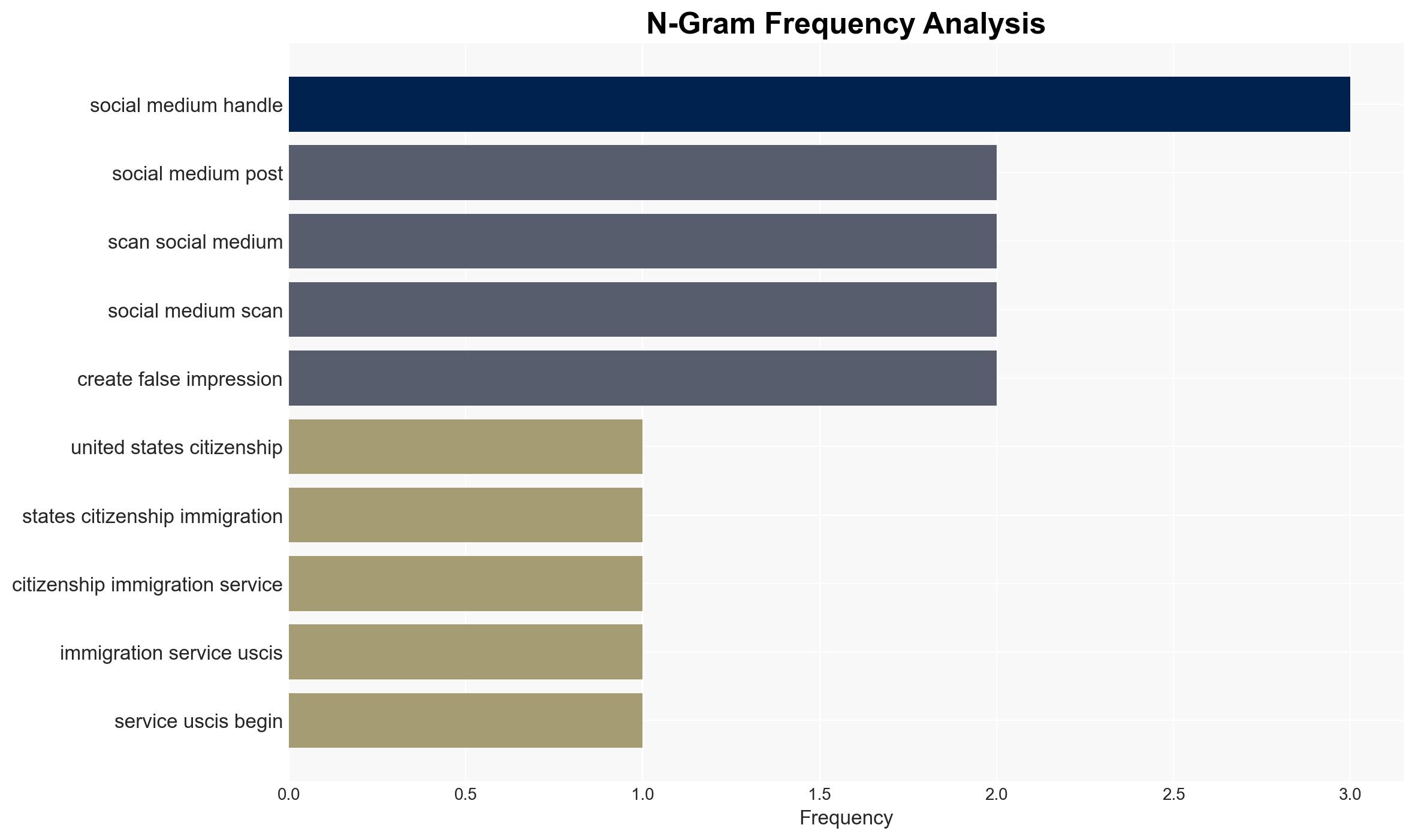Social Media Profiles Could Be Needed To Get A Green Card – Forbes
Published on: 2025-03-31
Intelligence Report: Social Media Profiles Could Be Needed To Get A Green Card – Forbes
1. BLUF (Bottom Line Up Front)
The United States is considering requiring social media profiles for green card applicants as part of an enhanced vetting process. This initiative, stemming from an executive order by Donald Trump, aims to identify anti-American sentiments among applicants. While the Department of Homeland Security has issued a notice for public commentary, concerns have been raised about potential impacts on free speech and privacy. The policy could lead to increased scrutiny of social media activity, affecting both applicants and current residents.
2. Detailed Analysis
The following structured analytic techniques have been applied for this analysis:
General Analysis
The proposal to require social media profiles for green card applications is part of a broader strategy to enhance national security by identifying potential threats. This approach is not entirely new, as the State Department already requires social media handles for visa applications. Experts like Matt Schmidt and Cliff Lampe have expressed concerns about the implications for free speech and the potential for misuse of personal data. The policy could lead to a chilling effect on online expression and the creation of secondary accounts to avoid scrutiny.
3. Implications and Strategic Risks
The implementation of this policy carries several risks:
- National Security: While intended to enhance security, the policy may not effectively identify threats due to the potential for false identities and manipulated social media content.
- Privacy Concerns: Increased scrutiny of social media could infringe on privacy rights and lead to the misuse of personal data.
- Economic Impact: The policy could deter skilled immigrants from applying for residency, affecting the U.S. economy.
- Social Implications: The policy may lead to self-censorship and alter online behavior, impacting freedom of expression.
4. Recommendations and Outlook
Recommendations:
- Implement clear guidelines to protect privacy and prevent misuse of social media data.
- Develop technological solutions to accurately verify social media identities without infringing on rights.
- Engage with stakeholders to address concerns and refine the policy for balanced security and privacy.
Outlook:
Best-case scenario: The policy enhances national security without significant infringement on privacy or free speech.
Worst-case scenario: The policy leads to widespread privacy violations and deters valuable immigrants, impacting the economy.
Most likely outcome: The policy faces legal challenges and public opposition, leading to revisions and delays in implementation.
5. Key Individuals and Entities
The report mentions significant individuals such as Donald Trump, Matt Schmidt, Cliff Lampe, and Rob Enderle. The Department of Homeland Security and the United States Citizenship and Immigration Services are key entities involved in this initiative.





